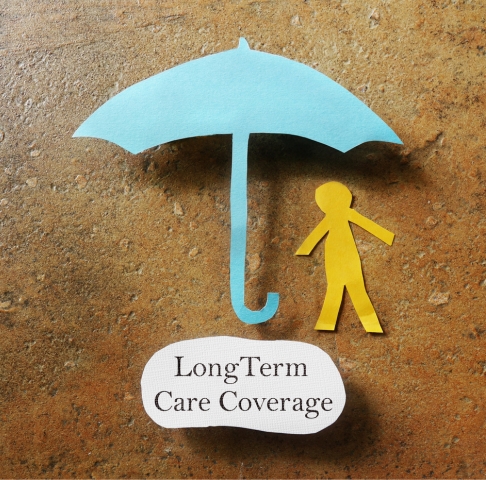You, yes you. If you’re self-employed or run your own business, your financial management would differ from that of a corporate employee’s. With rising costs of living and GST hikes, learning to be prudent and improving your money management skills is paramount.
Here are my five tips, plus insights from freelancers and business owners, on how to keep your finances in check if you’re self-employed.
1. Contribute to CPF (Central Provident Fund) voluntarily
Taking the full paycheck to the bank always feels good, but keeping up with the rising costs of living and medical inflation is another battle to fight. Using idle cash to generate some income is a good practice in planning ahead. By making voluntary CPF contributions, you’ll earn interest at the following risk-free rates:
- OA (Ordinary Account): 2.5% p.a.
- SA (Special Account): 4% p.a.
- MediSave: 4% p.a.
“Setting money aside in a savings account to fund a mortgage is good but contributing that amount towards my CPF OA helped me generate interest on top of that. I’m glad I did it, as the interest on my funds will be added to my principal amount which translates to a higher interest earned in the second year – this is the power of compounding.”
– Vanessa, aged 29, freelance designer
Savings in your CPF accounts can then be used to finance your mortgage, medical expenses and insurance policies while earning a steady interest rate on top of it. Furthermore, excess CPF amounts can also be invested in other asset classes if you don’t need it. There’s no ideal monthly amount, but it’s best to ensure that you have sufficient emergency funds in place already as you won’t be able to withdraw your CPF funds at will – this means setting aside 6 to 12 months of your income to prepare for any unforeseen circumstances as you journey through life.
2. Budget in advance
Having a clear picture of your finances, the monthly necessities, and the categories you expect to spend on helps you to better understand your financial behaviour and habits. Somewhat a forecast of your expenditure, it helps you to (hopefully) eliminate unnecessary expenses.
“As a business owner, learning to do proper budgeting and forecasting in advance helps me to be better prepared for rising costs and GST hikes.”
– Crystal, aged 38, local ice cream business owner
3. Track your cash flow
This requires some discipline but can come in clutch, especially when you’re working with a variable income stream. Using an expenses tracker such as Money Manager or even keeping an Excel spreadsheet can help you to keep tabs on your finances and ensure that you don’t blow your budget unknowingly.
“Mixing personal and business expenses can get hazy, especially when you don’t have a clear distinction between the two. Consolidating my payments and income helps me understand how profitable my freelancing career is, and how much more I can scale it.”
– Jeremy, aged 31, freelance copywriter
This can be applied to your income as well, as it helps to keep track of which clients or customers have paid for your services or products and which ones are still due. In combination, tracking your cash flow and budgeting in advance can help you to tide through rougher months when you have higher expenses or are expecting an income lower than usual.
4. Build alternative streams of income
Depending on your circumstances and goals, you’d be considering a myriad of investment vehicles. For example, if your monthly income isn’t regular enough, then savings or endowment plans that require a fixed monthly sum might not be up your alley if you want to maintain liquidity. You might opt for other options that offer more flexibility, such as investing with a robo-advisor or handling your own investments via a broker. For example, investors are usually paid dividends primarily through the rental income collected by REITs, so that might be suitable if you’re looking for a dividend strategy.
“I founded and ran a business distributing cosmetics for the past ten years. The business scaled over time and is now managed by my staff members. Since I’m pretty hands-off the business now, I also engage myself in consulting work with other cosmetic companies and startups to solve problems.”
– Sandra, aged 41, freelance business consultant and business owner
If you’re new to investing, you might want to read more about investment terms.
5. Get insured
Employees of companies are usually entitled to health insurance plans, but being self-employed means you fight your own battles. Audrey, Executive Director of Marketing at Singlife, shares her personal experience:
“My parents were self-employed in my childhood and did not purchase insurance for my brother and I when we were younger. My parents had to pay out of their pockets as my mischievous brother was always accident-prone, like breaking bones and contracting dengue.” Fortunately, Audrey was the healthy and lucky one who was in the pink of health.
– Audrey, aged 35, Executive Director of Marketing
Getting your child insured might not be the first thing that comes to mind – but there are affordable ways to go about this. For example, the Singlife Shield Starter plan costs only S$300 p.a. (before GST) that’s payable by MediSave, and you can add on just S$1 a year (before GST) to complement your coverage with Singlife Health Plus Starter, a rider that lowers your out-of-pocket expenses to just 5% of your hospital bill.
Whether you’re covered by corporate insurance or not, having basic insurance is always a good-to-have regardless of your current life stage. With all things, do assess and do your due diligence before choosing the plans most aligned with your current circumstances and lifestyle. This ensures that you (and your kids) will be sufficiently protected against any unseen health circumstances that might shake up your freelancing or business.
Notes
The above information is accurate as at 12 September 2023.
As this product has no savings or investment feature, there is no cash value if the policy ends or if the policy is terminated prematurely. Buying a health insurance policy that is not suitable for you may impact your ability to finance your future healthcare needs.








